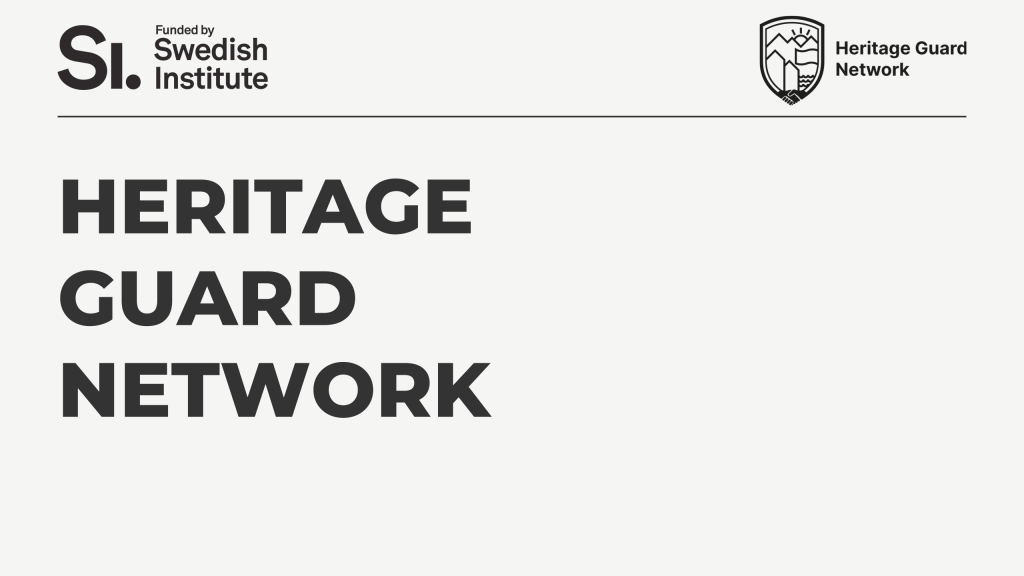
In February in Stockholm, Sweden, a group of affiliates (Wikimedia Sweden, Wikimedia Poland, Wikimedia UG Georgia, Wikimedia Ukraine) and representatives from the CEE Hub and the Content Partnerships Hub met in order to kick-off a seed project financed by The Swedish Institute. Heritage Guard Network (HGN): Empowering Communities to Safeguard Cultural and Natural Treasures through Crowdsourced Digital Efforts aims to create long-term, sustainable networks that compile, build, and share best practices on how to successfully crowdsource data and information on cultural and natural heritage in danger.
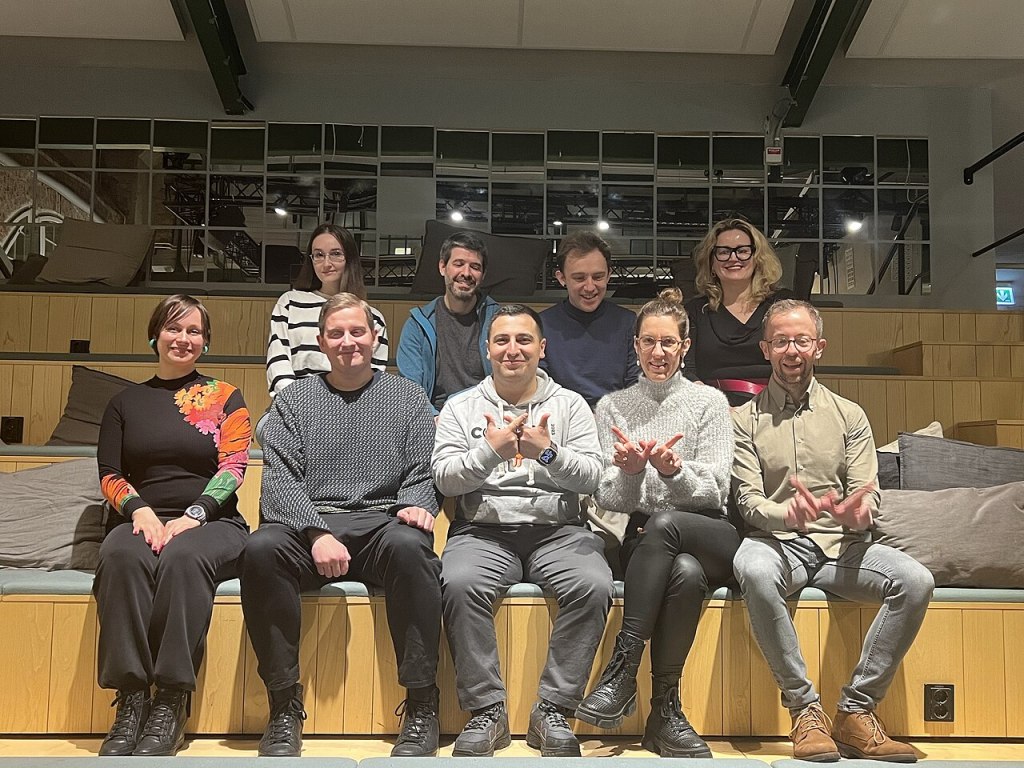
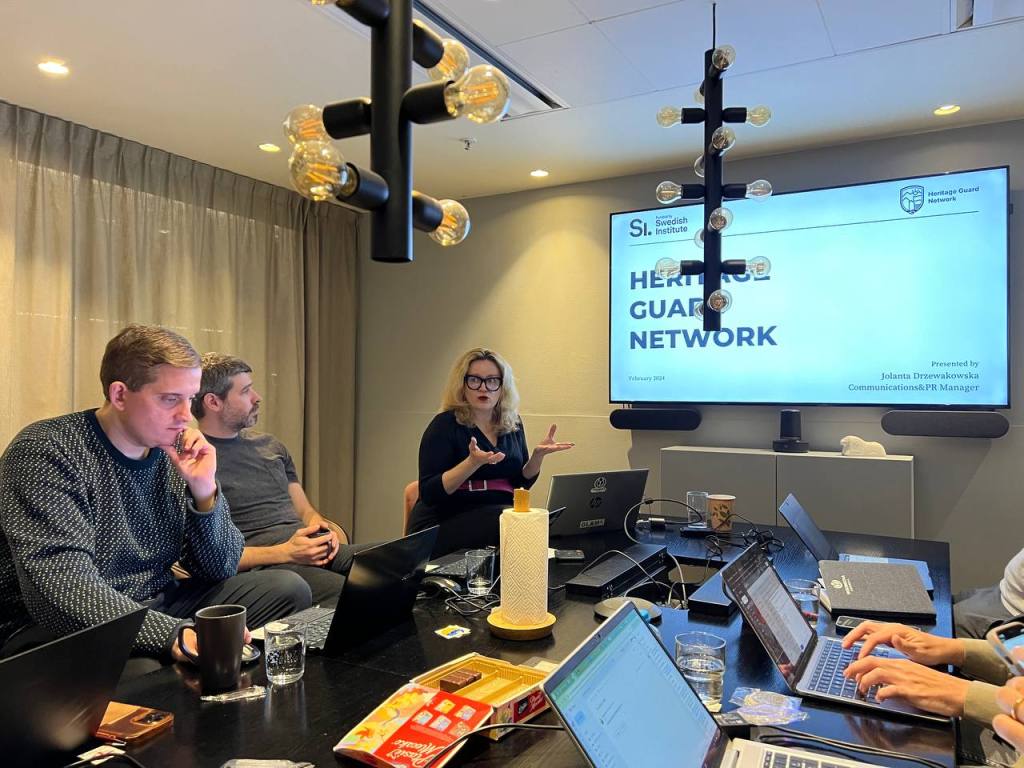
The foundation of collaboration
HGN brings together formal project partners, all of which are independently registered national NGOs recognized as national representatives of the international Wikimedia movement. This includes Wikimedia Sweden, Wikimedia Poland, Wikimedia UG Georgia, and Wikimedia Ukraine, alongside two Hub initiatives, the Content Partnerships Hub and the Central and Eastern European Hub. These entities share a common mission and will through the project engage in knowledge and experience exchange, primarily through online workshops and conferences.
These organizations have a history of collaboration with various institutions, including museums, galleries, and educational and state institutions, intending to make knowledge and content more openly available online.
Project goals and approach
The primary objective of the Heritage Guard Network is to develop and share best practices for utilizing Wikimedia platforms to digitally preserve and make publicly accessible the cultural and natural heritage that is at risk. The project focuses on fostering partnerships both within the Wikimedia community and with external entities, to strategically collect and compile information that maximizes the impact of preservation efforts.
Emphasizing both cultural and natural heritage, HGN aims to draw on the strong experiences of its partners to build capacity and share skills across regions. This collaborative effort is designed to make heritage freely available online, leveraging the collective strength of Wikimedia platforms and the network of partnerships, including Wikimedia affiliates and relevant external actors.
Kick-off meeting in Stockholm
On 14–16 February 2024, representatives of the project partners, at the invitation and under the leadership of Wikimedia Sweden, met to discuss the key elements of the initiative. The seed project will establish four working groups to which all interested volunteers and institutional partners are invited. These groups will discuss cultural and natural heritage preservation in four approaches. Each working group will be led by a different project partner:
- Legal (led by Wikimedia Georgia) – situation of freedom of panorama and other relevant laws in the concerned countries, other potential legal issues, and copyright.
- Risk (led by Wikimedia Ukraine) – exploring potential difficulties and challenges with making content and data available, security concerns for volunteers, how to make sure that more information is not used to destroy rather than safeguard.
- Engagement (led by Wikimedia Poland) – how to involve partners and volunteers in the work, how to build a sustainable network, and how to make volunteers, advisors, and partners involved.
Technology and content (led by Wikimedia Sweden) – identifying best practices for making data and content available, identifying databases and content, exploring software needed, mapping and perhaps carrying out a small initial pilot.
Meeting with local experts
The meeting in Stockholm was an occasion to explore the resources of the Swedish National Archives and to meet several experts whose knowledge is invaluable for the projects’ further development, such as representatives of UNESCO and Swedish Library Association. On the last day of the meeting, we also had a magnificent occasion to meet a group of experts from Ukraine, representing such organizations as the representatives of the Center of Digital History, M.F. Sumtsov Kharkiv Historical Museum, and Khortytsia Nature Reserve, and to see presentations about the Swedish heritage insurance system and safeguarding regulations.
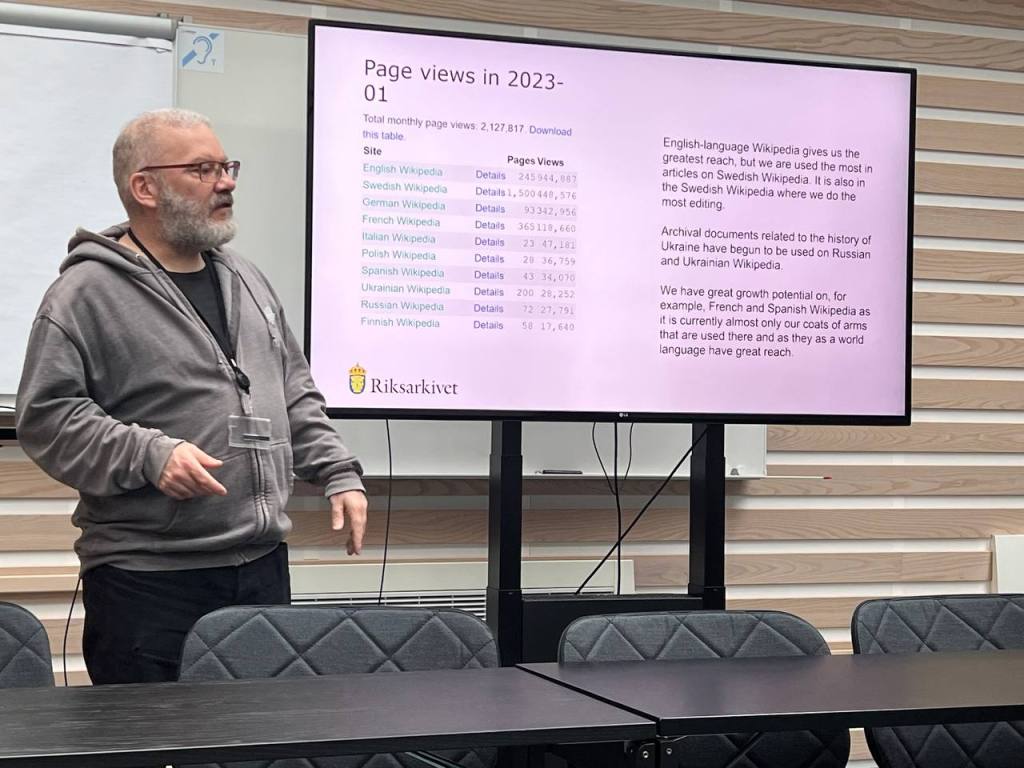
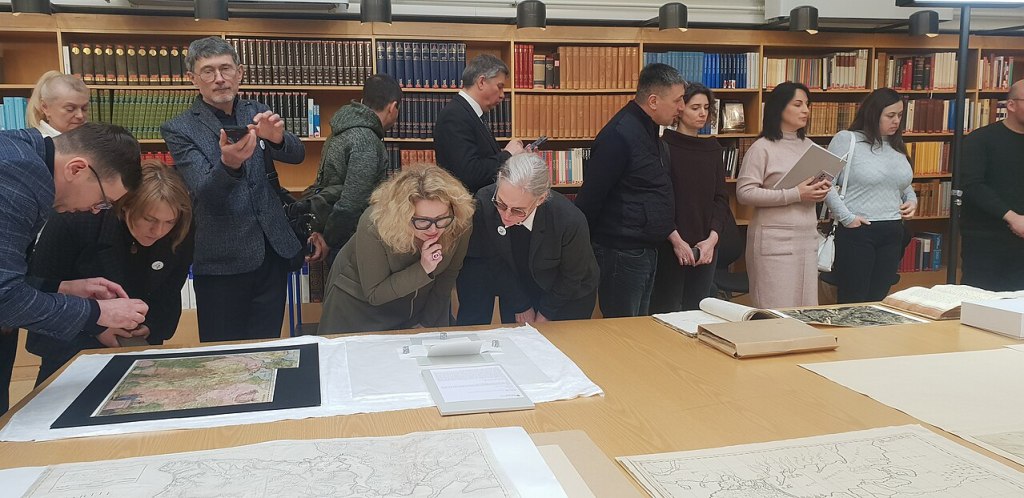
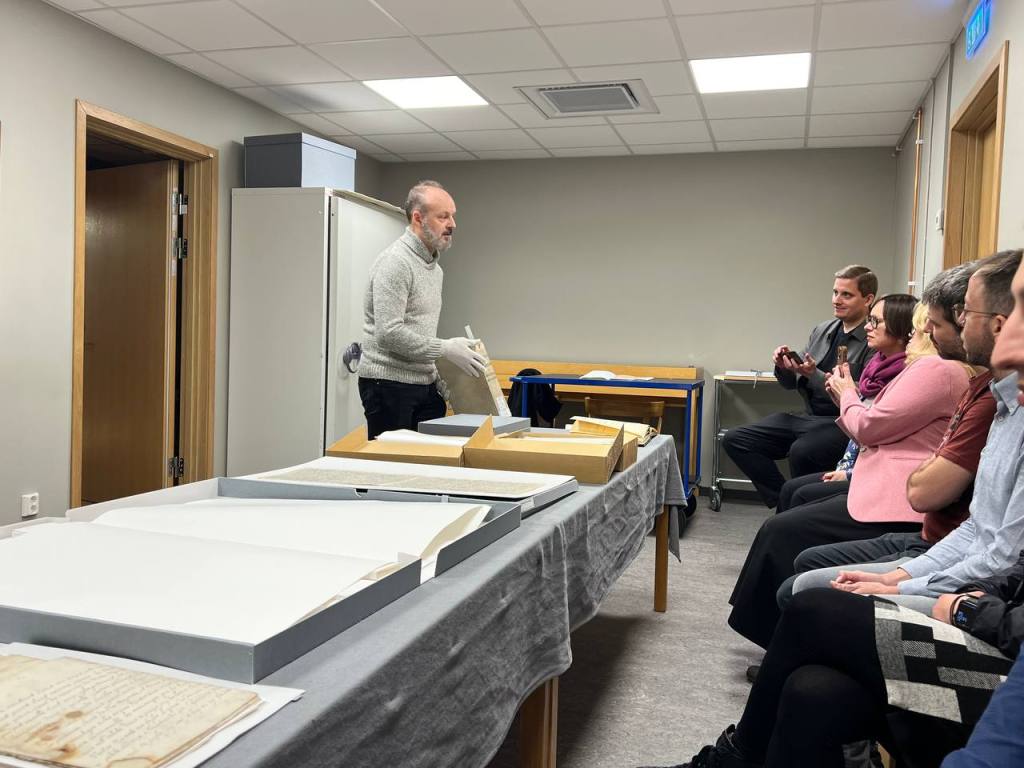
Next steps & call to action
If you want to be updated about the project’s development, please visit the wiki page Heritage Guard Network on Meta or email us at hgn@wikimedia.ge. We invite all interested volunteers and experts, including representatives of cultural institutions, to join our brainstorming meetings to be launched soon. If you are interested in joining a working group, according to your interest and expertise, you can show your interest by contacting us by writing an e-mail to: hgn@wikimedia.ge. We will send you a survey where you can apply to join. Please note that English is the working language in the project. The scope of each group is to elaborate on a research paper that will summarize state of the art in the given field of interest, which will be presented to the community for further investigation. All findings will be used to develop a bigger initiative to use crowdsourcing and technology offered by Wikimedia to safeguard natural and cultural heritage in the Baltic region. Stay tuned!

Can you help us translate this article?
In order for this article to reach as many people as possible we would like your help. Can you translate this article to get the message out?
Start translation